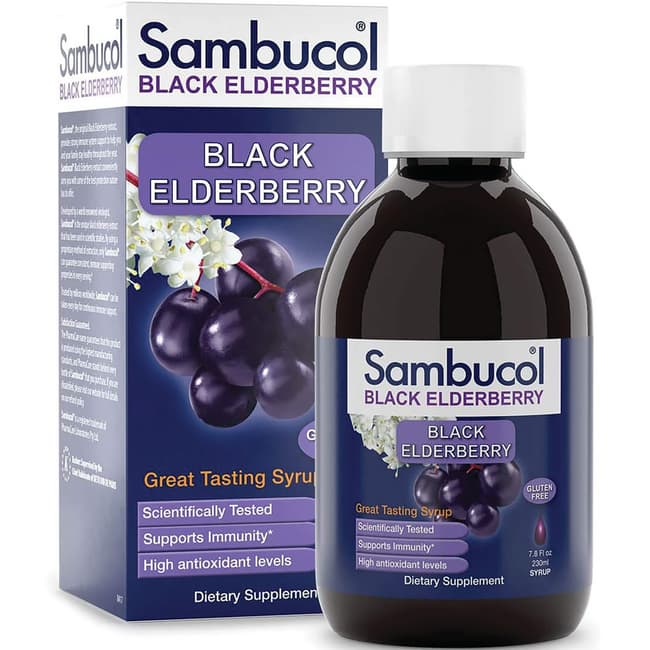Elderberries have been used medicinally since the time of ancient Rome. Elderberry syrup was a gypsy remedy for colds, flu, and neuralgia. What are the present uses and benefits of this important fruit?
What is Elderberry Extract?
Elderberry extract (or black elderberry extract) comes from the fruit of the elder tree (Sambucus nigra), a deciduous tree native to Europe, but now found in most temperate regions. The berries are picked in early autumn and made into syrup.

Benefits of Elderberry Syrup
Elderberries contain large amounts of vitamins A and C, both of which strengthen the immune system. The berries also contain compounds which bind with viruses and inhibit their ability to spread. It is believed that elderberries offer protection against at least eight strains of flu viruses.
Israeli research published in 1995 tested flu patients given a placebo versus flu patients given elderberry extract. Those receiving placebo took up to six days to recover, while those receiving elderberry extract took only two to three days to recover.
Two in-vitro studies done in 2015 showed that black elderberry extracts helped stimulate the immune system. A 2014 randomized double-blind study demonstrated that elderberry extract reduced the duration of the flu by about four days and reduced the need for pain relievers for those with the flu.
Preliminary studies have also demonstrated elderberry extract to be effective against herpes simplex, West Nile Virus and HIV. Elderberries also act as a mild laxative.
Precautions and Risks for Black Elderberry Extract
Do not eat raw elderberries, as they can cause nausea and vomiting. Elderberry stems, roots and leaves contain cyanide and are poisonous. Use a commercially prepared syrup or extract to prevent accidentally ingesting stems or raw berries.
Do not use elderberry if you are pregnant or breastfeeding. Because elderberry acts as a mild laxative, consuming large quantities can cause diarrhea. Vomiting has occurred in rare instances.
After opening, store elderberry syrup in the refrigerator, but avoid freezing.
History of Elderberry Usage
The elder tree has been associated with folk tales throughout history. Those living in rural England believed the elder tree was inhabited by the Elder Mother and chopping the branches was dangerous. To appease the Elder Mother, farmers would recite a rhyme before cutting the tree.
Since the time of ancient Rome, the elder tree has been used for medicinal and cosmetic purposes. The Romans used elderberries as a hair dye and believed that elder water was good for the complexion. (Elder water does have astringent qualities.) Hippocrates used elder to promote vomiting and purging.
Elder leaves have been used as ointments for wounds or made into tea to treat coughs (though this is not recommended, as the leaves contain cyanide).
Elderberries were also made into pies, tarts, jellies, jams and preserved, and even fermented to make wine.
But the most common usage for elderberries throughout history was as a remedy for colds, flu or bronchial ailments.
Elderberry syrup, an ancient remedy, is effective against colds, flu, and other viral diseases. Although the stems are poisonous, a commercially prepared syrup made from cooked elderberries is a safe treatment for the common cold and several kinds of flu.